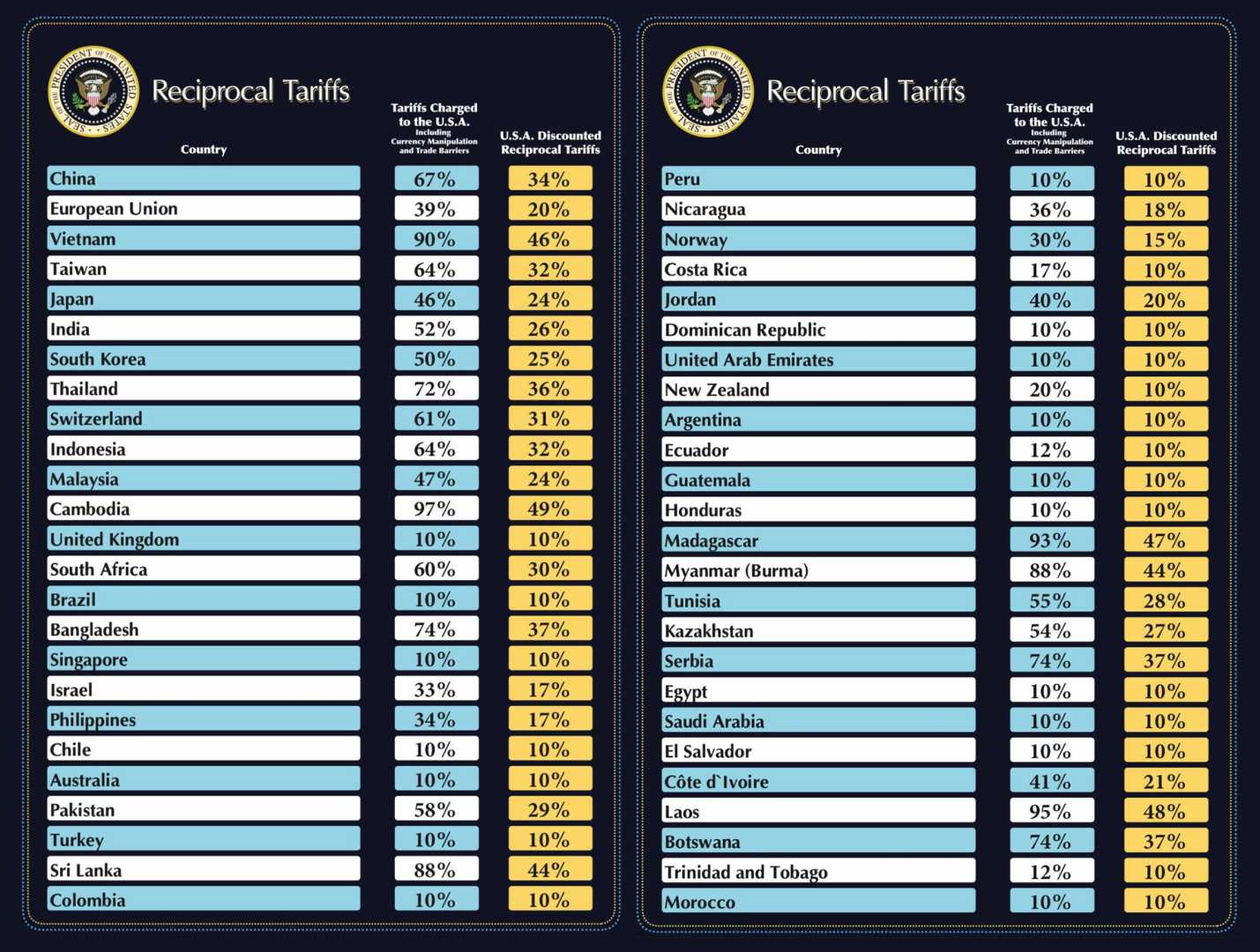Business
Trump Increases Tariffs, Sparking Global Trade Concerns

WASHINGTON, D.C. — President Donald Trump has increased tariffs on various countries, introducing a new wave of trade barriers that will take effect on August 7, 2025. This decision affects key trading partners like Canada, Switzerland, and Brazil, with tariff rates dramatically rising to as high as 50% for some nations.
The new tariffs will impose an average effective rate of 18.3%, which is the highest since 1934, according to estimates. The U.S. Trade Representative, Jamieson Greer, claims this change will create expansive market access for U.S. exporters and drive significant domestic manufacturing investments.
“The ‘Trump Round’ of trade negotiations has accomplished what previous multilateral efforts have not,” Greer stated, describing the tariff increases as a “knockout win.” This move aligns with Trump’s vision for greater U.S. economic independence.
Households are projected to face increased costs, with estimates suggesting an average burden of $2,400 in 2025 due to these tariffs. Specific goods like shoes and clothing could see prices soar by as much as 40% and 38%, respectively, in the short term, with long-term increases expected to be around 19% for shoes and 17% for clothing.
Countries facing the most substantial increases include Brazil, where tariffs jumped from 10% to 50%. Canadian Prime Minister Mark Carney expressed disappointment over the U.S. decision, pointing out that Canada was still keen to negotiate a better trading relationship.
In Switzerland, the government reacted with dismay as it faces a 39% tariff rate, one of the highest set during this round of changes. Swiss businesses, which are credited for substantial investments in the U.S. economy, have been vocal against these tariffs, calling them unjustified.
Meanwhile, South Africa will see a 30% tariff on its exports, with President Cyril Ramaphosa noting plans to support affected businesses. Brazilian Finance Minister Fernando Haddad also indicated that the government is developing a plan to assist companies impacted by these new rates.
As international financial markets reacted to the announcement, global stock indices saw declines, adding to the uncertainty surrounding global trade. The negative sentiment extends to U.S. job growth, which has shown signs of slowing amid these ongoing tariff deliberations.
Amid this trade turbulence, experts warn of potential inflationary pressures stemming from the rising costs of imported goods.












